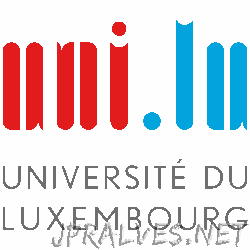Content for Luxembourg.Edu

The University of Luxembourg (Luxembourgish: Universitéit vu Lëtzebuerg; French: Université du Luxembourg; German: Universität von Luxemburg) is a public research university with an international, multilingual and interdisciplinary character, situated on Belval Campus and in Luxembourg City, Luxembourg. Founded in 2003, the university has already built a reputation as being among the best young universities in the world. It was ranked 12th in the Times Higher Young University Rankings 2018, and 178th in the Times Higher World University Rankings 2016. The university offers many bilingual and multilingual study programmes in French, English and German, as well as several master courses and doctoral schools entirely taught in English. With 6,200 students from 120 countries and 250 academics from all over the globe, the university provides a cosmopolitan learning experience. Moreover, all Bachelor's students have to spend a mandatory semester abroad, reflecting the importance attached to mobility. The university therefore cooperates with nearly 90 partner universities worldwide. The University of Luxembourg has three faculties, including the Faculty of Science, Technology and Communication, the Faculty of Law, Economics and Finance, the Faculty of Language and Literature, Humanities, Arts and Education, as well as three interdisciplinary research centres: the Luxembourg Centre for Systems Biomedicine (LCSB), the Interdisciplinary Centre for Security, Reliability and Trust (SnT) as well as the Luxembourg Centre for Contemporary and Digital History (C2DH). Current research priorities are computational sciences and ICT, systems biomedicine, European law, international finance and educational sciences.

“Professor Andreas Michels, physicist at the University of Luxembourg, explores the complex world of magnetic materials by shooting neutrons on them. He has now published his insights in a 380-page-thick monograph entitled “Magnetic Small-Angle Neutron Scattering − A Probe for Mesoscale …

“Research led by scientists from the University of Luxembourg has shown the potential of liquid crystal shells as enabling material for a vast array of future applications, ranging from autonomous driving to anti-counterfeiting technology and a new class of sensors …

“Research led by the University of Luxembourg investigated the manufacturing process of solar cells. The researchers proved that assumptions on chemical processes that were commonplace among researchers and producers for the past 20 years are, in fact, inaccurate. The physicists …




